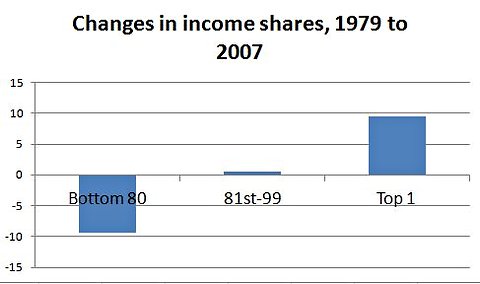Readers Question: I am much in favour of governments defaulting on what they owe to private financial institutions (as opposed to other governments). This would be in line with the ideas fuelling the current OCCUPY THE WALL STREET movement. I would very much like someone to comment if this is at all possible and practical. Would that help to stop the 1% living off the fat of the … USURY (shameless and gotten out of hand)? from (why not default on debt)
A government could decide to default on the debt it owes private financial institutions. But, the cost would be very high for everyone in society (not just the richest 1%). Government debt is owned by a variety of private sector institutions, including commercial banks, investment trusts, and pension funds who buy government bonds.
If the government defaulted it would hurt the richest members of society, as the top financiers would lose money and see bank profits fall sharply. However, government default would also hit workers who have contributed to a pension fund. If the government defaulted, it would cause a serious fall in the value of pension funds; this would probably hit everyone who has a stake in a private pension.
If the government defaulted on debt, it would cause serious repercussions for taxpayers and the economy in the future. If a government decides to default, they won’t be able (or will find it very difficult and expensive) to borrow in the future. If a government can’t borrow easily this can affect everyone in society. For example, in a recession it is necessary for government borrowing to increase (lower tax receipts / pay more on unemployment benefits). In a recession, government borrowing helps to stimulate the economy (expansionary fiscal policy) and also reduce the economic hardship of those made unemployment.
Read more


